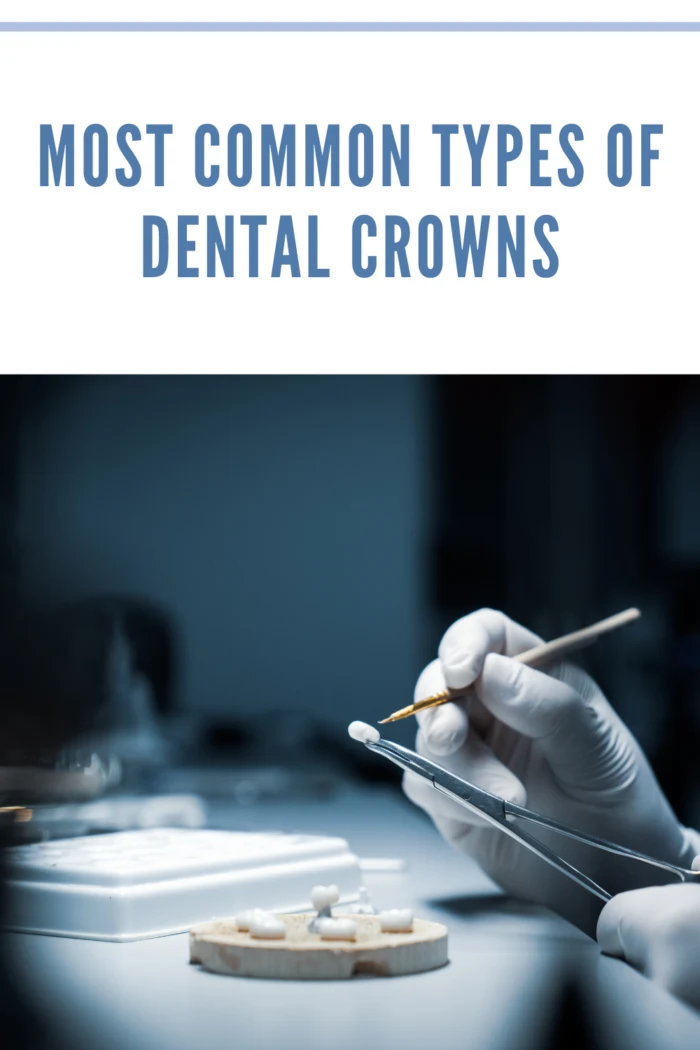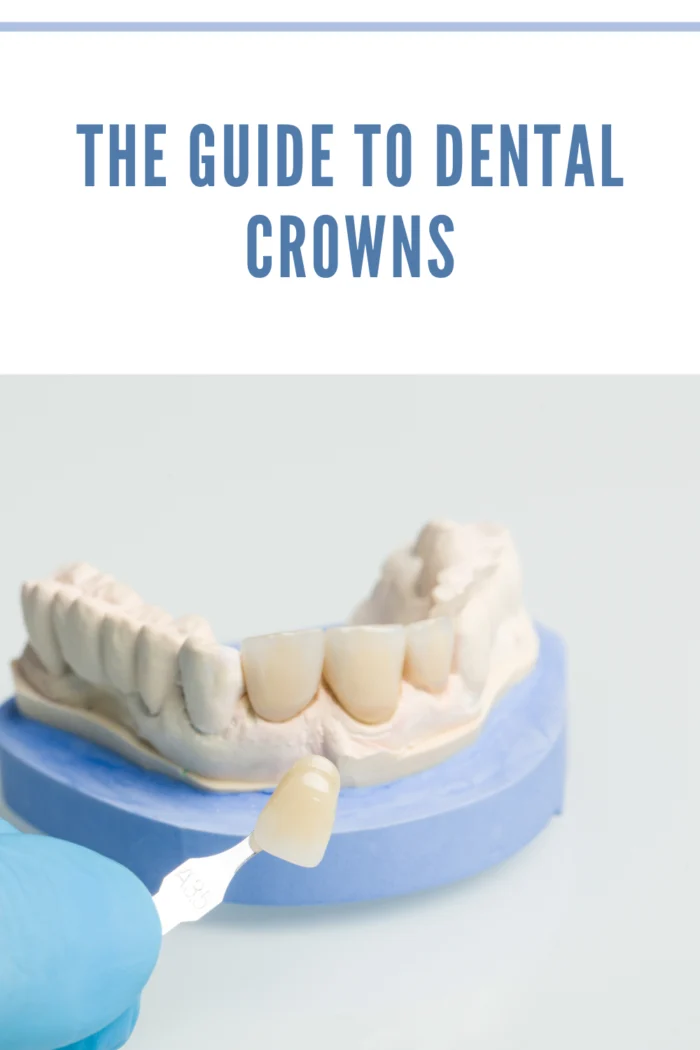Discover the Power of Dental Crowns – Restore Your Smile! Are you looking for a reliable, effective solution to restore damaged or weakened teeth? Look no further! Introducing our Dental Crown Guide – the ultimate dental restoration that combines strength, functionality, and aesthetics for a winning smile!
Dental Crowns are probably the most creative and useful dental innovations that were introduced. A Dental Crown is similar to a customized cap for every patient to fit over the patient’s tooth. This is used to restore the size and shape of a tooth, enhance its strength or protect any broken or chipped tooth. The ideal procedure for dental crowns is that the crown fits into the desired place and is cemented to work for the next decade! We share the guide to Dental Crowns.
The Guide to Dental Crowns
Why You Need a Dental Crown
Dental crowns serve several important purposes and may be necessary for various reasons:
- Tooth Protection: Dental crowns are used to protect and strengthen weakened or damaged teeth. If a tooth has a large cavity, extensive decay, or a fracture, a crown can provide reinforcement and prevent further damage. It acts as a protective cap, covering the entire visible portion of the tooth and safeguarding it from additional harm.
- Restoration of Damaged Teeth: Teeth that have undergone root canal therapy or have been severely worn down may require dental crowns for restoration. After a root canal, the tooth structure can become brittle and more prone to fractures. Placing a crown over the treated tooth provides strength and restores its function and appearance. Similarly, crowns can be used to rebuild worn-down teeth, restoring their natural shape, size, and biting surface.
- Support for Dental Bridges: Dental crowns play a vital role in supporting dental bridges. A bridge is used to replace missing teeth by anchoring artificial teeth (pontics) to adjacent natural teeth or dental implants. The natural teeth or implants that serve as supports for the bridge are often covered with crowns to provide stability and ensure a secure fit.
- Cosmetic Enhancement: Dental crowns can also be used for cosmetic purposes, improving the appearance of teeth. They can address teeth that are severely discolored, misshapen, or have undergone previous dental treatments that affect their aesthetics. By placing a crown over such teeth, their color, shape, size, and alignment can be enhanced, resulting in a more pleasing and harmonious smile.
- Tooth Replacement with Dental Implants: When replacing a missing tooth with a dental implant, a crown is typically attached to the implant as the visible portion above the gumline. The dental implant acts as an artificial tooth root, providing stability and support for the crown. This allows for the replacement tooth to function and blend in seamlessly with the surrounding natural teeth.
- Long-Term Dental Restoration: Dental crowns are designed to be durable and long-lasting. They can withstand the forces of biting and chewing, providing a strong and stable restoration. With proper oral hygiene and regular dental care, a well-maintained dental crown can last for many years, offering a reliable and functional solution for damaged or missing teeth.
Besides these reasons, you can also use dental crowns for baby teeth as well. This is for babies with special cases that have extremely poor oral hygiene, which demands the need for crowns.
If you have concerns about the condition of your teeth or are experiencing dental issues, it’s best to consult with a dentist. They can evaluate your specific situation and recommend appropriate treatment, which may include the placement of a dental crown if necessary.

Different Varieties of Crowns
Dental crowns come in two varieties; permanent crowns and dental crowns. These varieties exist because of the differences in their materials. Every patient’s need for a dental crown differs, so the two types are introduced. Temporary crowns are made easily in your dentist’s office because of the acrylic-based material. But permanent crowns are made in a dental lab because their materials are tougher and take more time.
There are several different varieties of dental crowns available, each with its own unique characteristics and materials.
The most common types of dental crowns include:
- Porcelain Crowns: Porcelain crowns are highly popular due to their natural appearance and ability to mimic the color and translucency of natural teeth closely. They are an excellent choice for front teeth and can be customized to match the surrounding teeth seamlessly.
- Porcelain-Fused-to-Metal (PFM) Crowns: PFM crowns combine the strength of a metal substructure with the aesthetic appeal of porcelain. They have a metal base for durability and are layered with porcelain on top to achieve a natural appearance. PFM crowns are versatile and can be used for both front and back teeth.
- All-Ceramic or All-Porcelain Crowns: All-ceramic or all-porcelain crowns are made entirely of porcelain or ceramic materials without any metal substructure. These crowns are prized for their excellent aesthetics, biocompatibility, and ability to transmit light, similar to natural teeth. They are ideal for patients with metal allergies or those seeking highly esthetic restorations.
- Metal Crowns: Metal crowns are made from various non-precious or precious metals, such as gold, palladium, or nickel-chromium alloys. They offer exceptional strength and durability, making them suitable for molars or teeth that undergo significant biting forces. Metal crowns are highly resistant to wear and require minimal tooth preparation.
- Zirconia Crowns: Zirconia crowns are crafted from zirconium oxide, a strong and durable ceramic material. They possess excellent biocompatibility and can withstand the biting forces in the back teeth. Zirconia crowns are highly esthetic, providing natural-looking results, and are known for longevity.
- Composite Resin Crowns: Composite resin crowns are made from a tooth-colored composite material directly applied and sculpted onto the prepared tooth. These crowns are typically used as temporary restorations or for children who are still growing. They are less durable than other types of crowns and may require more frequent maintenance or replacement.
The choice of dental crown material depends on several factors, including the location of the tooth, aesthetic requirements, the patient’s oral health, and budget considerations. Your dentist will evaluate your specific needs and recommend the most suitable type of crown for your situation.

How Much Does a Dental Crown Cost?
The cost of a dental crown can vary depending on various factors, such as the material used, the location of the tooth, the complexity of the case, and the geographic location. Generally, a dental crown can range from $800 to $2,500 per tooth.
Here is a breakdown of the average cost range based on different types of dental crowns:
- Porcelain Crowns: The average cost for porcelain crowns typically ranges from $800 to $1,500 per tooth.
- Porcelain-Fused-to-Metal (PFM) Crowns: PFM crowns usually range from $900 to $1,700 per tooth.
- All-Ceramic or All-Porcelain Crowns: The cost of all-ceramic or all-porcelain crowns can range from $1,000 to $2,500 per tooth.
- Metal Crowns: Metal crowns tend to be more affordable, with an average cost ranging from $800 to $1,500 per tooth.
- Zirconia Crowns: The average cost of zirconia crowns is usually in the range of $900 to $2,000 per tooth.
It’s important to note that these are general cost ranges and may vary based on individual dental practices and the specific circumstances of each case. Dental insurance may partially cover the cost of a crown, so it’s advisable to check with your insurance provider to understand your coverage.
Additional costs may be involved if other dental treatments or procedures, such as tooth extraction or root canal therapy, are required before crown placement. Your dentist will provide a personalized treatment plan and discuss the associated costs with you.
Remember that while cost is a consideration, it’s important to prioritize the quality and longevity of the crown, as well as the expertise of the dental professional performing the treatment. Investing in a well-made and properly fitted crown can provide long-term benefits for your oral health and overall well-being.

Benefits of Dental Crowns
Dental crowns offer several benefits to individuals requiring restorative or cosmetic dental treatments.
Here are some of the key benefits of dental crowns:
- Protection and Strength: Dental crowns protect and strengthen damaged or weakened teeth. They act as a protective cap, covering the entire visible portion of the tooth, preventing further damage from decay, fractures, or other dental issues. Crowns help preserve the natural tooth structure and enhance its strength, improving function and longevity.
- Restoring Function: Dental crowns restore the functionality of damaged teeth. Whether it’s a tooth with a large filling, a cracked tooth, or a tooth that has undergone root canal therapy, crowns can rebuild and reinforce the tooth structure. This enables the tooth to withstand the forces of biting and chewing, restoring normal oral function.
- Aesthetics and Natural Appearance: Crowns are designed to resemble natural teeth, closely providing an aesthetically pleasing result. They can be customized in terms of color, shape, and size to match the surrounding teeth, ensuring a seamless and natural-looking smile. Dental crowns can enhance the appearance of teeth affected by discoloration, irregular shape, or other cosmetic concerns.
- Longevity and Durability: When properly cared for, high-quality dental crowns can last for many years. They are made from durable materials such as porcelain, metal, or zirconia, which can withstand regular dental function’s daily wear and tear. Crowns offer long-term solutions for restoring and protecting teeth, reducing the need for frequent repairs or replacements.
- Comfort and Improved Bite Alignment: Dental crowns can help improve the alignment of your bite, ensuring that your upper and lower teeth meet properly. This can alleviate discomfort or strain on the jaw joint (temporomandibular joint), reduce headaches, and enhance overall oral comfort.
- Versatility: Dental crowns are versatile and can be used in various dental procedures. They can be placed over dental implants to replace missing teeth, support dental bridges, or be used as part of a comprehensive smile makeover. The versatility of dental crowns allows for comprehensive treatment planning and addressing multiple dental concerns simultaneously.
- Enhanced Self-Confidence: Dental crowns can positively impact self-confidence and self-esteem. By restoring damaged or cosmetically flawed teeth, crowns can help individuals feel more confident about their smile and improve their overall appearance. This boost in self-confidence can profoundly affect social interactions, professional success, and overall well-being.
It’s important to consult with a dentist to determine if dental crowns are the appropriate treatment for your specific dental needs. They can evaluate your oral health, discuss treatment options, and provide personalized recommendations to help you achieve optimal oral health and a beautiful smile.
